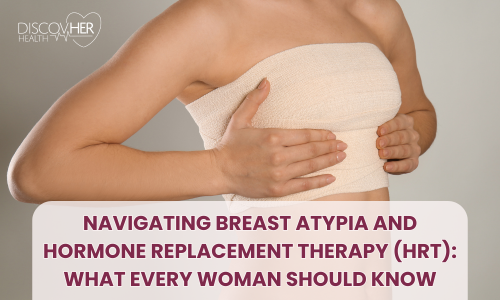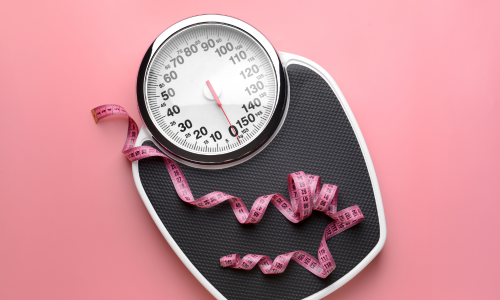The Connection between Hormones and Mental Health

In my practice, I often witness how deeply interconnected our physical and mental health truly are. One area that stands out is the relationship between hormones and mental health. Hormones are not just about physical processes; they play a crucial role in regulating our mood, emotions, and overall mental well-being. Unfortunately, this delicate balance is easily disrupted as we navigate the stress and challenges of daily life.
How Do Your Hormones Play a Part in Mental Wellness
Hormones are chemical messengers that regulate a wide array of functions in the body, including mood and behavior. When hormone levels fluctuate or become imbalanced, it can significantly impact mental health. Some of the key hormones involved in mental wellness include:
- Estrogen and Progesterone: These hormones are vital in regulating mood and emotions, particularly for women. They play a crucial role during the menstrual cycle, pregnancy, and menopause. Imbalances in estrogen and progesterone can lead to mood swings, anxiety, and depression. For example, the drop in estrogen during menopause is often linked to increased anxiety and depressive symptoms.
- Testosterone: Testosterone isn’t just important for men; it’s also crucial for women’s mental health. This hormone helps regulate mood, energy levels, and motivation. When testosterone levels are low, it can result in depression, fatigue, and irritability. In women, low testosterone can also lead to decreased cognitive function and diminished overall well-being.
- Cortisol: Known as the stress hormone, cortisol plays a key role in how our bodies respond to stress. While it’s essential for managing short-term stress, chronic stress can lead to consistently elevated cortisol levels, which can contribute to anxiety, depression, and cognitive issues. High cortisol levels can also disrupt sleep, increase appetite, and affect where your body stores fat.
Differences in Presentation Between Men and Women
The effects of hormonal imbalances on mental health can vary significantly between men and women, reflecting the different ways our bodies respond to hormone changes:
Women:
- Mood Swings:Hormonal changes during the menstrual cycle, pregnancy, postpartum, and menopause can cause significant mood swings. These fluctuations are often due to changes in estrogen and progesterone levels.
- Premenstrual Dysphoric Disorder (PMDD): This severe form of premenstrual syndrome (PMS) can cause extreme mood disturbances, including severe irritability, depression, and anxiety, often linked to the luteal phase of the menstrual cycle.
- Postpartum Depression: After childbirth, the sudden drop in estrogen and progesterone levels can lead to postpartum depression, which affects many new mothers.
Men:
- Depression: Men with low testosterone levels may experience depression, irritability, and a lack of motivation. Unlike women, these symptoms often develop gradually as testosterone levels decline with age.
- Anxiety: Hormonal imbalances can also lead to anxiety in men, though it may present more as anger or irritability rather than the worry typically associated with anxiety in women.
The Role of Cortisol
Cortisol is essential for managing stress, but when stress becomes chronic, it can lead to consistently high cortisol levels. This can have several negative effects on mental health, including disrupted sleep, increased anxiety, and a greater risk of depression. Elevated cortisol levels can also interfere with blood sugar control, appetite, and fat storage, contributing to a range of physical and mental health issues. Managing stress through lifestyle changes, such as regular exercise, mindfulness practices, and adequate sleep, can help regulate cortisol levels and improve your mental well-being.
Treatment Options
Addressing hormone-related mental health issues involves a combination of approaches, tailored to each individual’s unique needs. Here are some options available:
Hormone Optimization:
- For Women:Hormone optimization can be incredibly effective in managing mood swings, anxiety, and depression related to menopause or other hormonal changes throughout a woman’s life. This may involve supplementing estrogen, progesterone, testosterone, or a combination of these hormones.
- Estrogen: Estrogen significantly impacts serotonin levels in the brain, a key neurotransmitter that regulates mood. Supplementing estrogen can help alleviate mood disturbances associated with menopause.
- Progesterone: Progesterone has a calming effect on the brain due to its interaction with GABA receptors, which promote relaxation and reduce anxiety. Balancing progesterone levels can improve sleep and reduce stress.
- Testosterone: Although often associated with men, testosterone is also essential for women’s mental health. Balanced testosterone levels can enhance energy, mood, and cognitive function in women.
- For Men: As men age, their testosterone levels naturally decline, which can lead to a range of mental health issues, including depression, anxiety, irritability, and cognitive decline.
- Testosterone Replacement Therapy: This therapy can help restore testosterone levels in men, improving mood, energy levels, and overall mental well-being. It’s a personalized approach that can significantly enhance quality of life for men experiencing the effects of low testosterone.
Prioritize Your Hormones to Support Your Mental Health
Hormones play a vital role in mental health, and imbalances can lead to significant mood disturbances. Understanding how hormones affect your mental well-being and recognizing the differences in how these imbalances present in men and women is crucial for effective treatment. Whether through hormone replacement therapy, supplements, or lifestyle changes, addressing hormonal imbalances can greatly improve your mental health and overall quality of life.
If you have concerns about your mental health or suspect a hormonal imbalance, consider scheduling a consultation with us at DiscovHER Health. Our team is here to help you explore personalized treatment options that support both your mental and physical well-being.
About Us
Jenna Perkins is a board certified Women’s Health and Gender Related Nurse Practitioner with extensive knowledge and experience in Urogynecology, Pelvic Pain, Sexual Health, and complex Gynecology. She is founder of DiscovHER Health, Northern Virginia’s premier destination for women’s healthcare and expertly curated products.
DiscovHER Health Offers cutting edge treatments
Pelvic Health + Wellness
- FormaV vaginal regeneration
- PTNS Bladder control
- Morpheus8v
- VTone
- SoLa Pelvic Therapy
- Dysis Colposcopy
- Pelvic Reset
Skincare | Face + Body
Body Toning + Tightening
Weight Loss Program
Where are we located?
We are located in Alexandria, Virginia and serve patients from all over the Mid-Atlantic including Washington DC, Alexandria, Baltimore, and Chevy Chase







Leave a Comment